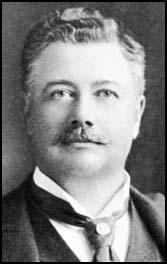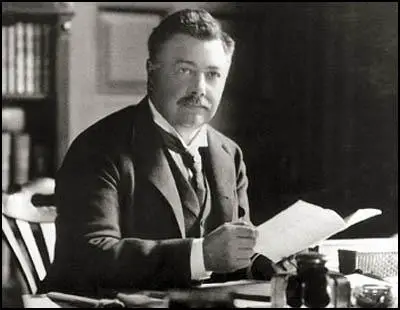Seth Low

Seth Low was born in Brooklyn, New York, on 18th January, 1850. After graduating from Columbia College in 1870, Low joined his father's silk importing business.
A successful businessman, Low became involved in local politics and was twice elected to the post of mayor of Brooklyn (1881-85) where he developed a reputation for honesty and efficiency. He also served as president of Columbia College (1890-1901), where he paid for new buildings on the campus and supported higher education for women.
Low took a keen interest in politics. In 1891 he wrote: "It is estimated that the population of New York City contains 80 per cent of people who either are foreign-born or who are the children of foreign-born parents. Consequently, in a city like New York, the problem of learning the art of government is handed over to a population that begins in point of experience very low down. It many of the cities of the United States, indeed in almost all of them, the population not only is thus largely untrained in the art of self-government but it is not even homogeneous; so that an American city is confronted, not only with the necessity of instructing large and rapidly growing bodies of people in the art of government but it is compelled at the same time to assimilate strangely different component parts into an American community."

Low, with the support of Charles Parkhurst, the president of the Society for the Prevention of Crime, led the campaign against corruption in New York City. After a long struggle, Low became the new mayor of the city in 1901 when he defeated Richard Croker and the Tammany political machine. Lincoln Steffens reported: "The mayor of New York, Seth Low, was a business man and the son of a business man, rich, educated, honest, and trained to his political job. Seth Low and his party in power and his backers were not radicals in any sense. Mr. Low himself was hardly a liberal; he was what would be called in England a conservative. He accepted the system; he took over the government as generations of corrupters had made it, and he was trying, without any fundamental change, and made it an efficient, orderly business-like organization for the protection and the furtherance of all business, private and public."
As well as serving as mayor of New York City (1901-03), Low was chairman of the Tuskegee Institute (1907-1916) in Alabama.
Seth Low died on 17th September, 1916.
Primary Sources
(1) Seth Low, American City Government (1891)
It is estimated that the population of New York City contains 80 per cent of people who either are foreign-born or who are the children of foreign-born parents. Consequently, in a city like New York, the problem of learning the art of government is handed over to a population that begins in point of experience very low down. It many of the cities of the United States, indeed in almost all of them, the population not only is thus largely untrained in the art of self-government but it is not even homogeneous; so that an American city is confronted, not only with the necessity of instructing large and rapidly growing bodies of people in the art of government but it is compelled at the same time to assimilate strangely different component parts into an American community. It will be apparent to the student that either of these functions by itself would be difficult enough. When both are found side by side, the problem is increasingly difficult as to each. Together they represent a problem such as confronts no city in Europe.
(2) Lincoln Steffens, Autobiography (1931)
The mayor of New York, Seth Low, was a business man and the son of a business man, rich, educated, honest, and trained to his political job. Seth Low and his party in power and his backers were not radicals in any sense. Mr. Low himself was hardly a liberal; he was what would be called in England a conservative. He accepted the system; he took over the government as generations of corrupters had made it, and he was trying, without any fundamental change, and made it an efficient, orderly business-like organization for the protection and the furtherance of all business, private and public.

